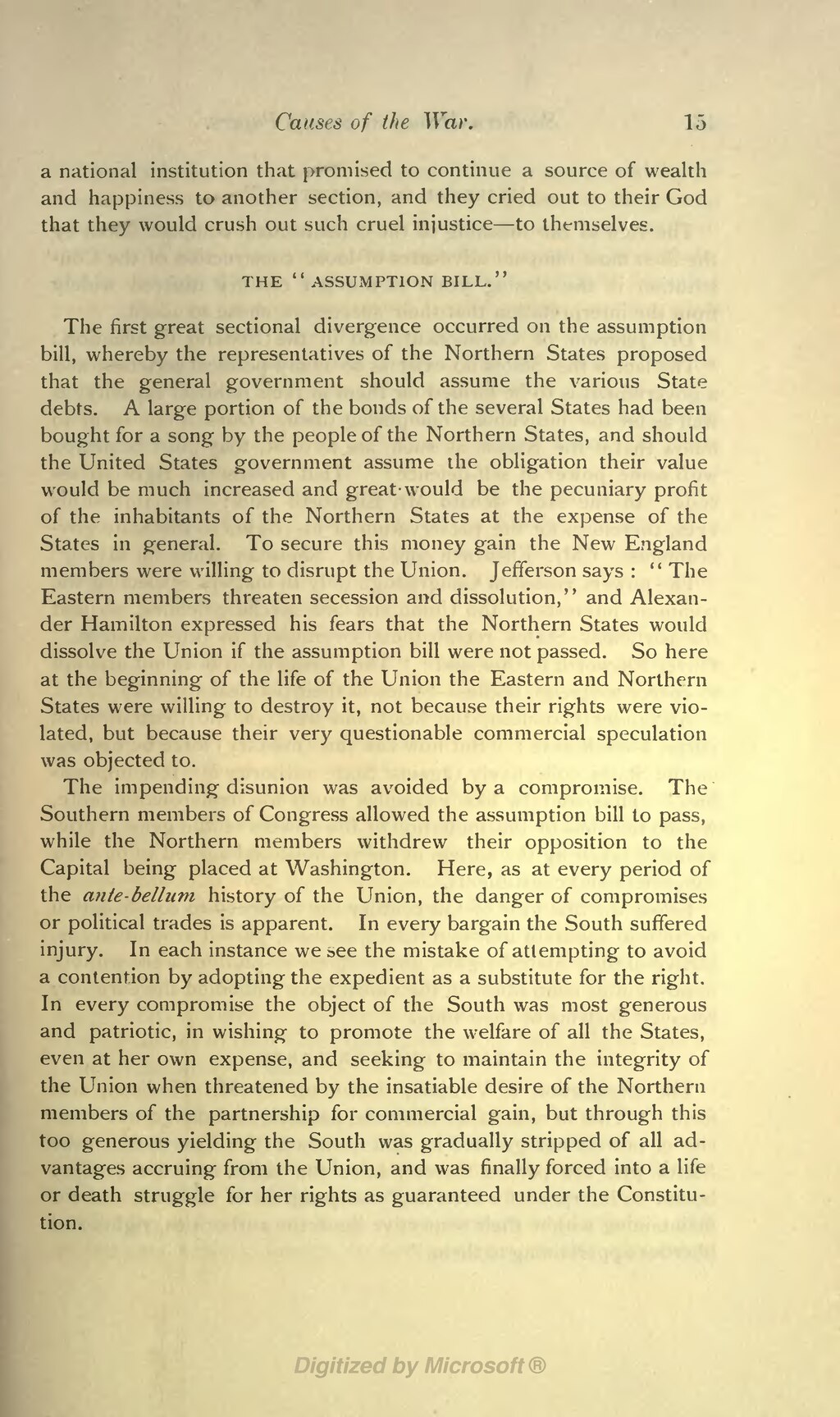Causes of the War. 15
a national institution that promised to continue a source of wealth and happiness to another section, and they cried out to their God that they would crush out such cruel injustice to themselves.
THE " ASSUMPTION BILL."
The first great sectional divergence occurred on the assumption bill, whereby the representatives of the Northern States proposed that the general government should assume the various State debts. A large portion of the bonds of the several States had been bought for a song by the people of the Northern States, and should the United States government assume the obligation their value would be much increased and great- would be the pecuniary profit of the inhabitants of the Northern States at the expense of the States in general. To secure this money gain the New England members were willing to disrupt the Union. Jefferson says : " The Eastern members threaten secession and dissolution," and Alexan- der Hamilton expressed his fears that the Northern States would dissolve the Union if the assumption bill were not passed. So here at the beginning of the life of the Union the Eastern and Northern States were willing to destroy it, not because their rights were vio- lated, but because their very questionable commercial speculation was objected to.
The impending disunion was avoided by a compromise. The Southern members of Congress allowed the assumption bill to pass, while the Northern members withdrew their opposition to the Capital being placed at Washington. Here, as at every period of the ante-bellum history of the Union, the danger of compromises or political trades is apparent. In every bargain the South suffered injury. In each instance we see the mistake of attempting to avoid a contention by adopting the expedient as a substitute for the right. In every compromise the object of the South was most generous and patriotic, in wishing to promote the welfare of all the States, even at her own expense, and seeking to maintain the integrity of the Union when threatened by the insatiable desire of the Northern members of the partnership for commercial gain, but through this too generous yielding the South was gradually stripped of all ad- vantages accruing from the Union, and was finally forced into a life or death struggle for her rights as guaranteed under the Constitu- tion.
